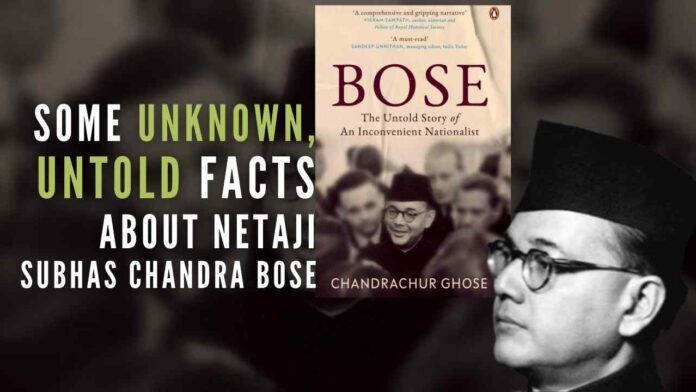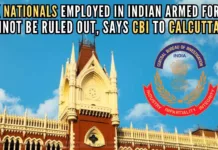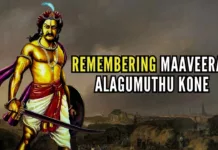
Netaji Subhas Chandra Bose: The untold story of an inconvenient nationalist
Not much has been written on the life and sacrifices made by our freedom fighters to date. But slowly and steadily we are witnessing the change wherein, we are giving the long due respect to our forgotten heroes.
In a first of its kind, a critical biography of Netaji Subhas Chandra Bose is written by Chandrachur Ghose.
Pacey, thought-provoking and absolutely unputdownable, Chandrachur Ghose, in Bose: The Untold Story of an Inconvenient Nationalist (Penguin) opens a window to many hitherto untold and unknown stories of Netaji Subhas Chandra Bose.
Chandrachur Ghose is an author, researcher, and commentator on history, economics, and environment, having graduated from Visva Bharati and the University of Sussex. He has co-authored “Conundrum: Subhas Bose’s Life After Death“, which features among the bestsellers on Amazon.
Ghose is one of the founders of the Mission Netaji pressure group that has been the moving force behind the declassification of secret documents related to Netaji Subhas Chandra Bose. His activism led to the declassification of over ten thousand pages in 2010.
Very few have witnessed a life that is more dramatic and adventurous like that of Netaji. That, however, is an assessment of his life based on what is widely known about him.
In a span of two decades, major developments took place in his life. These often revolve around his resignation from the Indian Civil Service, joining the freedom movement, to be exiled twice for over seven years, throwing a challenge to the Gandhian leadership in the Congress, taking up an extremist position against the British Raj, evading the famed intelligence network to travel to Europe and then to Southeast Asia, forming two Governments and raising two armies and then disappearing into the unknown.
Now, new information throws light on Bose’s intense political activities surrounding the revolutionary groups in Bengal, Punjab, the United Provinces, and what is now Maharashtra and his efforts to bridge the increasing communal divide and his influence among the splintered political landscape; his outlook and relations with women; his plunge into the depths of spirituality; his penchant for covert operations and his efforts to engineer a rebellion among the Indian armed forces.
With this new information, what appeared to be dramatic now becomes more intense with plots and subplots under one man’s single-minded focus on freeing the motherland and envisioning its development in a new era.
Furthermore, one of the most sensitive issues that have prevented political parties and successive governments from talking much about Bose is his joining the Axis camp. While Jawaharlal Nehru and other prominent Congress leaders publicly denounced the move, the Communist Party of India went on to a prolonged vilification campaign. Sardar Patel issued instructions to Congress leaders to defend the INA soldiers without eulogizing their leader.
Was Bose really a Nazi sympathizer? Knowing very well about the strong public opinion that existed among the political leadership and the intelligentsia in India against Nazi Germany, fascist Italy, and imperial Japan, why did he risk his own political image by allying with the Axis powers?
[With Inputs from IANS]
PGurus is now on Telegram. Click here to join our channel and stay updated with all the latest news and views
For all the latest updates, download PGurus App.










